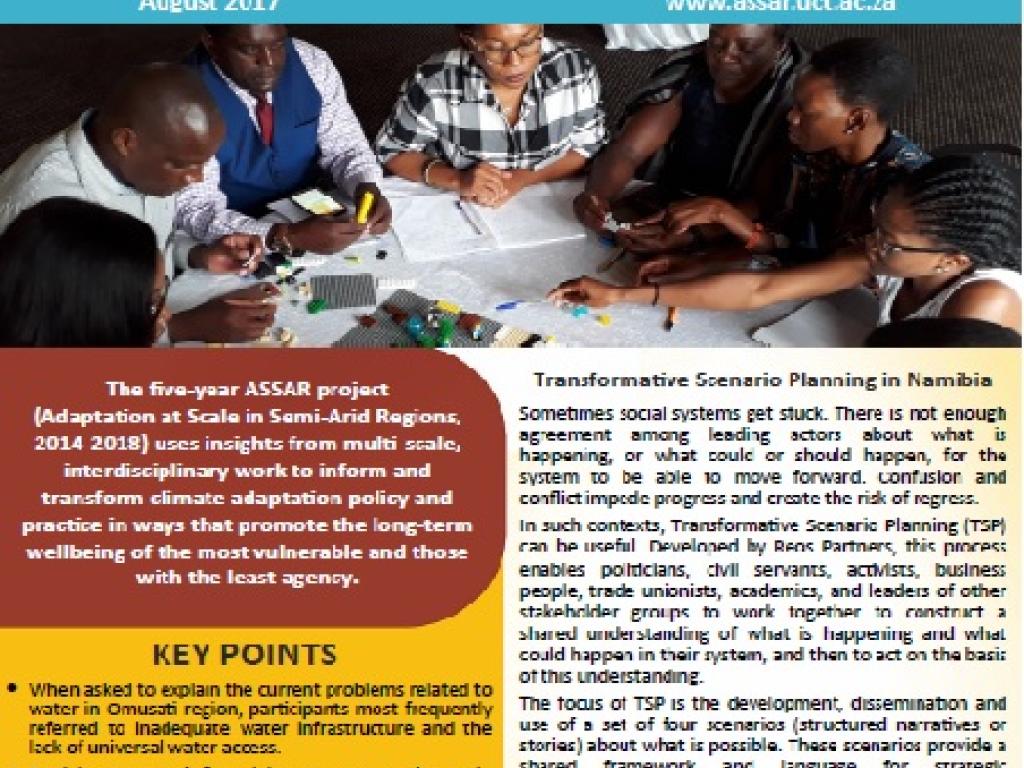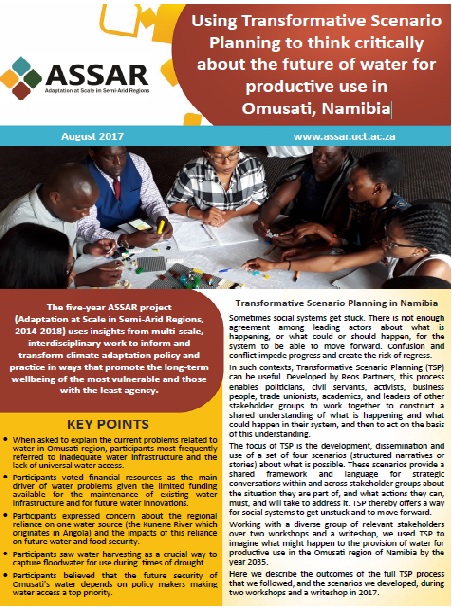Using Transformative Scenario Planning to think critically about the future of water for productive use in Omusati, Namibia

Sometimes social systems get stuck. There is not enough agreement among leading actors about what is happening, or what could or should happen, for the system to be able to move forward. Confusion and conflict impede progress and create the risk of regress.
In such contexts, Transformative Scenario Planning (TSP) can be useful. Developed by Reos Partners, this process enables politicians, civil servants, activists, business people, trade unionists, academics, and leaders of other stakeholder groups to work together to construct a shared understanding of what is happening and what could happen in their system, and then to act on the basis of this understanding.
The focus of TSP is the development, dissemination and use of a set of four scenarios (structured narratives or stories) about what is possible. These scenarios provide a shared framework and language for strategic conversations within and across stakeholder groups about the situation they are part of, and what actions they can, must, and will take to address it. TSP thereby offers a way for social systems to get unstuck and to move forward.
Working with a diverse group of relevant stakeholders over two workshops and a writeshop, we used TSP to imagine what might happen to the provision of water for productive use in the Omusati region of Namibia by the year 2035.
Here we describe the outcomes of the full TSP process that we followed, and the scenarios we developed, during two workshops and a writeshop in 2017.
Click to download
